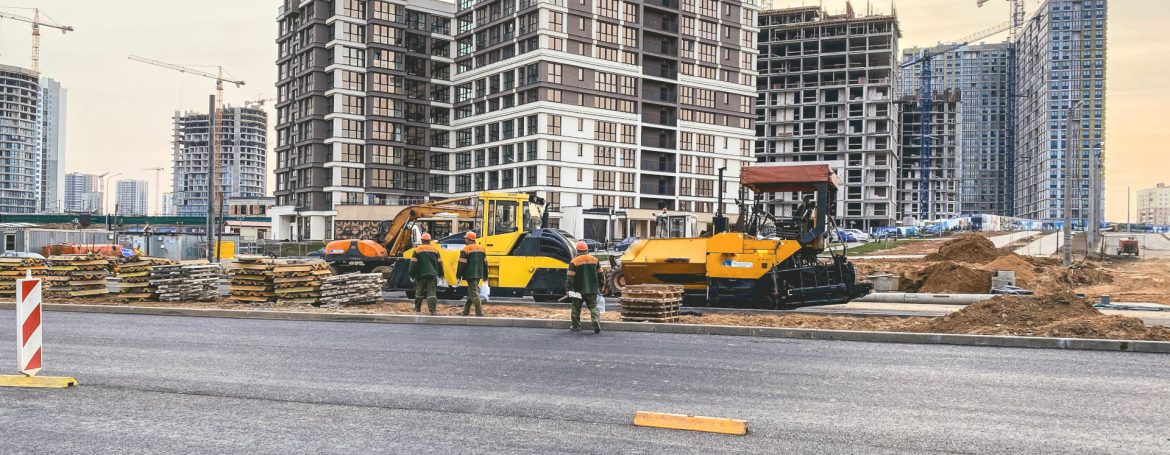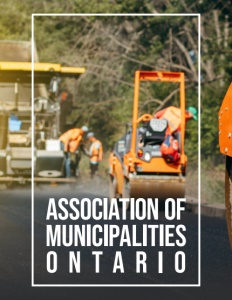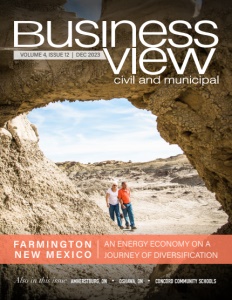Association of Municipalities Ontario
Ontario’s Municipalities are Local Champions in Economic Development
Ensuring a growing and vibrant economy is a top priority for Ontario’s municipalities. Of the three orders of government, municipalities have the greatest opportunity and ability to promote economic development. That said, supporting long-term growth in Ontario’s twenty-nine largest and fastest growing municipalities will require partnerships across all orders of government. This presents some interesting opportunities and challenges as municipalities plan their communities, provide critical services, build with purpose and work to attract and retain businesses. Municipalities large and small rely on property taxes to conduct their important business, accounting for more than 50% of the revenue municipalities collect.
 It’s time for a property tax reassessment
It’s time for a property tax reassessment
Property taxes are calculated using a current value assessment of a property. During the height of the pandemic – and for good reason – the Ontario government paused reassessing property values. This means that as we approach 2024, municipalities still rely on property values from 2016. In the past seven years, other Canadian provinces will on average have reassessed properties more than six times. After such a long waiting period, reassessment is top of mind for Ontario’s municipalities. However, municipalities aren’t the only ones impacted.
As a result of inaction, our property tax system could also be compromising the province’s economic competitiveness. Ontario considers itself the economic engine of Canada. The province’s largest growth centres generate nearly 25% of the national gross domestic product. To realize its growth plans, the province needs to ensure its property tax system is simple and clear. By continuing to use 2016 property values and not clarifying its intentions for a reassessment, it offers a precarious tax environment where people and businesses do not understand their future property tax liabilities. The resulting economic instability makes it challenging for individuals and businesses looking to relocate to Ontario. It’s time for a reassessment.
Meeting Ontario’s objectives for growth
It is also time to begin a discussion about the fiscal framework needed to support local governments in their work to meet the provincial government’s growth objectives. Municipalities in Ontario cannot run budget deficits, meaning that the funding sources for financial obligations can come from property tax increases, service cuts, the use of reserves, and in some cases, taking on additional debt. Each year the province of Ontario issues an annual repayment limit that restricts how much debt a municipality can take on. Municipalities are responsible and accountable governments. However, municipalities are regulated by provincial law and are required to follow the rules laid out for them.
Over the past decade, municipalities have been required by the province to better coordinate decisions regarding the building, operating, maintaining, renewing, replacing and disposing of infrastructure assets. Municipalities use this to make the best possible investment decisions for their infrastructure assets – assets used every day by people and businesses across Ontario.
Municipal governments are a key partner in a resilient economy, investing revenues of $60 billion annually in important public services and infrastructure. And while the overall state of municipal financial health is stable, being left solely responsible for many of the services and infrastructure that make Ontario a destination for investment and people is an ongoing concern.
Imagine a world where all levels of government came together to fund and build the infrastructure needed to attract businesses and accommodate growth. As the Ontario government recognizes itself, infrastructure investments are vital to strengthening the economy, creating jobs and building strong communities in which residents enjoy a high quality of life. But municipalities need more financial tools to realize these complex challenges. We cannot build and maintain infrastructure that we need for a thriving Ontario economy financed by property tax alone.

Workers placing new coating of asphalt on the road.
More tools needed to address today’s challenges
Ontario already has the second highest property taxes amongst all provinces and territories at $2,100 per capita. We can and must work better together to respect our single and shared taxpayer. Municipal governments are best known for providing the services that Ontarians rely on most each day and at all stages of life, including garbage collection, public transit, water and sewage, parks and recreation, police and fire services, and electric utilities, amongst many others. Municipalities have and will continue to innovate but they need more tools to help address increasingly complex policy challenges, like housing and homelessness, that stand in the way of Ontario being an attractive place to live, work, and play. Ontario is our home and the mutual benefit of vibrant, thriving communities is felt at every level of government.



